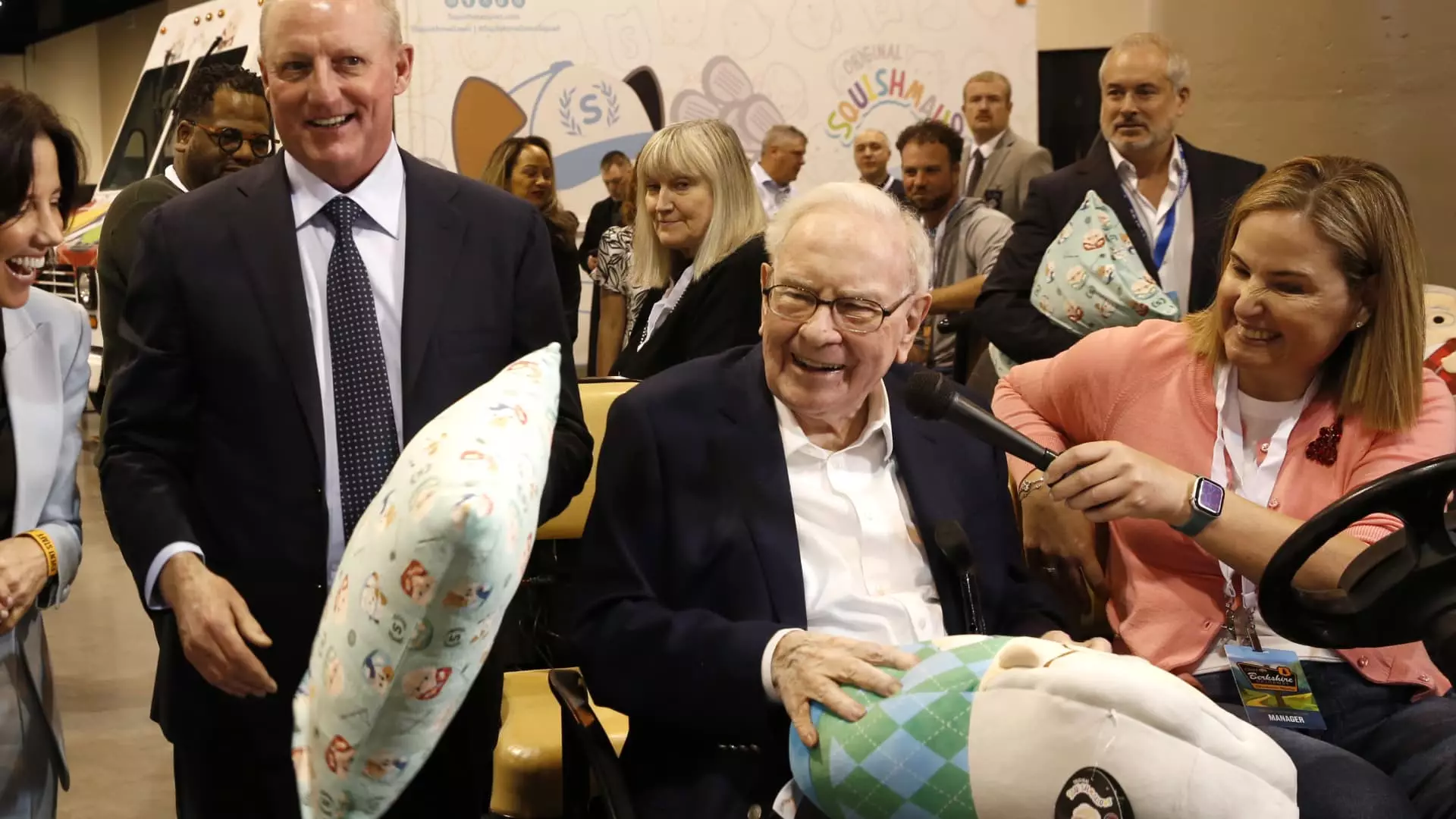In a move that took many by surprise during Berkshire Hathaway’s annual meeting, Warren Buffett announced he will officially step down as CEO by year-end, paving the way for Greg Abel, currently the vice chairman of non-insurance operations, to take the helm. At 94 years old, this shift is both monumental and, frankly, inevitable. It stirs mixed feelings among the thousands of shareholders in attendance, who have come to view Buffett not just as a leader, but as a central figure in their financial lives. For many, the meeting’s atmosphere was charged with the bittersweet reality of losing an era defined by Buffett’s unwavering guidance and investment acumen.
Buffett’s announcement, described casually yet gravely, was more than a mere formality; it reflected a pivotal moment in Berkshire’s long history. During the meeting, Buffett commented that the news would be new to many of the board members—an admission that underlines the gravity of the situation. The excitement among shareholders mingled with reservations; they had come to hear words of wisdom from the “Oracle of Omaha” but left grappling with the knowledge that things are about to change dramatically.
The Legacy and the Successor
Born in Edmonton, Alberta, Greg Abel represents a fresh chapter within a company that has thrived largely due to Buffett’s exceptional vision. His tenure of over 25 years with Berkshire—marked by his significant role in transforming MidAmerican Energy—indicates that he is not a stranger to high-stakes decision-making. However, the question lingers: Can Abel carry the gargantuan legacy left behind by Buffett, particularly as Berkshire Hathaway’s market cap approaches a staggering $1.2 trillion?
Abel’s appointment comes during a time of financial optimism, with Berkshire’s shares recently hitting record heights. Buffett remains resolute in his belief that Abel will guide the company toward further successes, possibly even eclipsing his monumental achievements. The transitioning of power is delicate; yet, the palpable enthusiasm from Buffett about his successor’s proactive management style suggests that the change might be more welcomed than feared. Still, any doubt about Abel’s abilities in shadowing Buffett’s legacy will persist until proven otherwise.
A New Era of Management Styles
One of the core insights shared by Buffett during this landmark meeting was his acknowledgment of different management approaches between himself and Abel. The legendary investor described how Abel’s intensive, hands-on style is yielding better results for Berkshire’s diverse operations. Buffett candidly admitted, “I could get away with it because we’ve got a basically good business,” highlighting the lack of a fire in his managerial belly relative to that of his successor. This contrast is interesting; it raises the question about the long-term sustainability of a less confrontational method in today’s fast-paced market.
As Abel assumes the CEO position, the implementation of an aggressive and engaged leadership style could invigorate Berkshire Hathaway’s numerous subsidiaries, potentially pushing the conglomerate into new heights. The meat of the matter, however, lies in Abel’s ability to strike a balance between maintaining Buffett’s legendary investment philosophy while also embracing a new era’s demands and challenges.
The Bird’s-Eye View on Capital Allocation
An interesting aspect of this transition lies in Abel’s commitment to upholding Buffett’s time-tested capital allocation strategies. While many may view this as a reassuring move that signals stability, it also prompts skepticism about how the changing landscape of investing may influence future decisions. Abel himself recognizes the weight of stewardship he is about to take on, reaffirming that the “investment philosophy will not change” under his leadership.
However, the validity of this assertion comes into question when considering the complexities of the current economic environment. The investment world is in constant flux—can traditional value investing withstand such pressures? How will Abel navigate potential turbulence when presented with the urgency to adapt? The stakes are high; this isn’t merely about mimicking a successful formula.
The Future and Its Uncertainty
While Buffett has confirmed his willingness to remain involved, the ambiguous role he will play moving forward raises additional questions. Will his presence serve as a crutch for Abel, or can Abel stand confidently on his own? The complexities of Berkshire Hathaway’s vast operations, coupled with its legacy, make this an interesting phase.
This pivotal transition captures a broader narrative about leadership in large corporations. All eyes will be on Greg Abel as he attempts to balance the enormous expectations placed upon him while simultaneously navigating the challenges of an evolving market. As shareholders united in support of Buffett gave him a standing ovation, the dichotomy of reverence for the past and anxiety for the future was unmistakable. This moment encapsulates both the ending of an era and the dawning of another—one that will undoubtedly be intensely scrutinized in the years to come.

